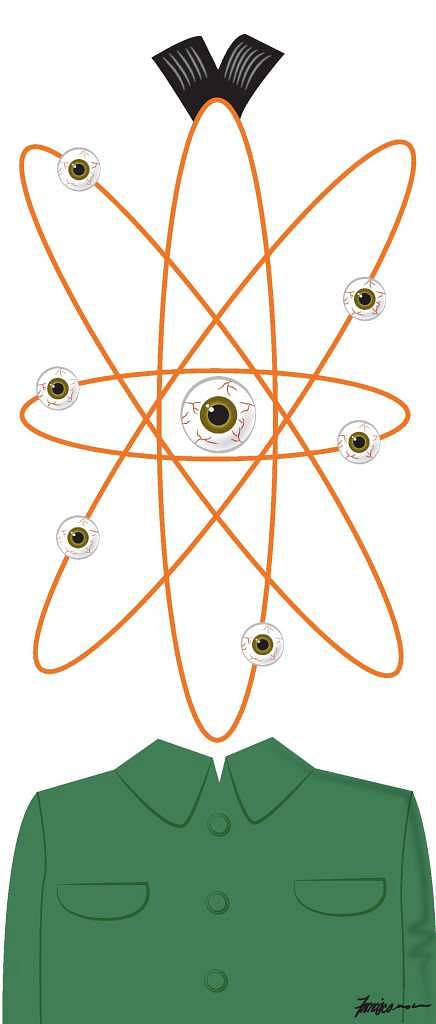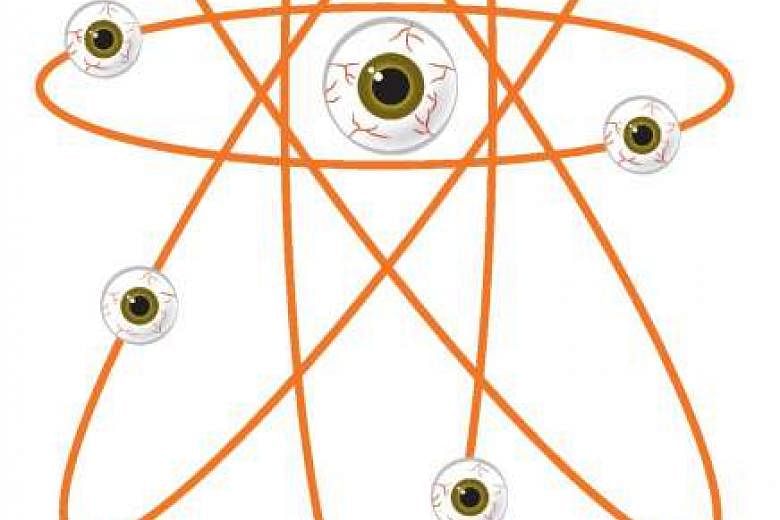LONDON • North Korea's quest to acquire both nuclear weapons and their delivery systems will be high on the agenda today when United States President Barack Obama meets with Asean leaders at the Sunnylands resort in California. As the US State Department's spokesman put it, Mr Obama wishes to forge a "close coordination towards a robust and united international response" to North Korea's " violations of multiple United Nations Security Council resolutions that threaten international peace and security".
But the discussion on this topic is unlikely to extend much beyond boilerplate expressions of "concern" about Pyongyang's activities. For the reality remains that, although nobody likes what North Korea is doing, nobody is prepared to do much about it either.
North Korea's story is one of a monumental self-deception in which, at one time or another, most of the world's governments indulged. And it is also a sorry tale of failure in diplomatic imagination.
It is wrong to suggest, as many commentators, particularly those in China, still do, that the US is responsible for "pushing" North Korea down the nuclear road, allegedly because of Washington's refusal to conclude a peace treaty with Pyongyang, or because of the menacing presence of US troops on the Korean peninsula.
For North Korea's nuclear quest is not a response to a specific and particular threat, but a logical outcome from the paranoia of the Pyongyang regime, which perceives itself as facing an existential threat from all quarters. It may suit the Kim clan to explain its development of nuclear weapons by the imperative of "standing up" to the US and safeguarding the country's independence. But the truth is that the bomb is also a defence against China, Japan, South Korea, Russia - a shield against all the neighbours which Pyongyang views with suspicion.
In effect, North Korea's nuclear programme is designed to compensate for the inherent weakness of a regime which otherwise defies every economic logic, and often seems to defy even the force of gravity. It is not so much that the world has been so hostile to North Korea as to push it down a nuclear path but, rather, that the country's bizarre regime long ago concluded that an armed hostility towards the entire world was its only chance of survival.

NO ORDINARY LOGIC
Once it became clear in the early 1960s that Pyongyang wanted the bomb, it should have been obvious that no ordinary logic or arms control agreement was going to deflect North Korea from this path. But for more than half a century, every government that dealt with the "Hermit Kingdom" opted to ignore this reality and hope instead that North Korea's defiance could somehow be addressed through a "political dialogue". This is, undoubtedly, one of the biggest exercises in self-deception in modern history.
The first to fall for this self-deception was not the US but the Soviet Union, which rejected North Korea's secret request to access Russian nuclear weapons technology but still agreed to build a "civilian" nuclear reactor at Yongbyon, and to train a generation of North Korean nuclear scientists; both were the kernels of the military programme which flourishes today.
And China, which also formally rejected North Korea's request for help in producing a bomb, was just as determined to ignore realities. For it is inconceivable that the Chinese, with their intimate links to the North Korean military and intelligence services, did not know about Pyongyang's nuclear efforts; a much more likely explanation is that, like the Soviets, the Chinese assumed that a nuclear North Korea would be more of a threat to the US and its allies rather than to the region's communist powers. It was a catastrophic mistake which today's Russia and China will live to regret.
Still, it was the US which engaged in the most public and improbable exercises in self-deception. In their interminable negotiations with the North Koreans, the Americans vowed that - as former US defence secretary Robert Gates once aptly put it - they won't be "buying the same horse twice", meaning that they won't offer Pyongyang an inducement in return for a deal, only to see the North Koreans break the deal and then return to the negotiating table again in search of further concessions. But that is precisely what the US has done: the same dead horse was sold time after time.
NO COUNTING ON CHINA
Yet the most absurd exercise in self-deception was the Obama administration's invention of the concept of "strategic patience", based on the assumption that the US could afford to wait for North Korea to denuclearise, either because the country would not be able to sustain its increased international isolation, or because the Pyongyang regime would crumble from inside.
Not only was this totally wrong, but the concept of "strategic patience" acted as a smokescreen, relieving US officials from the need to face Asia's strategic realities. It allowed the US to prioritise the Iranian nuclear question at the expense of dealing with North Korea. It also allowed the Americans to pretend that doing nothing was, supposedly, a highly sophisticated approach; in effect, not having a policy became America's chief North Korean policy. The result is, of course, the disaster we have today: enough UN Security Council resolutions to build a library, but still a North Korea with a nuclear arsenal.
Can something still be done to rein in North Korea? Yes, plenty. First, the US and its allies should abandon hope that China can be persuaded to exercise pressure on North Korea to either stop or dismantle its nuclear programme.
True, the Chinese don't like what the North Koreans are doing. However, China still likes the idea of a divided Korean peninsula, if only because it ensures that a great Korean nation cannot rise to become another Asian irritant to the Chinese as Japan currently is. That is why South Korean President Park Geun Hye's assiduous courting of China produced zero results in moving Beijing to put pressure on North Korea.
The only way the Chinese are likely to budge is if the US and its allies make clear to Beijing that China itself will begin to pay a strategic price for tolerating North Korea's defiance. This week's start of talks between the US and South Korean governments over the eventual deployment of the Terminal High-Altitude Area Defence, or THAAD, one of the most advanced missile defence systems in the world, is a step in precisely such a direction.
China hates the idea of THAAD, because the system can also operate against Chinese equipment. An increased US naval presence in the Yellow Sea - another measure Beijing resents intensely - should also be contemplated for the same purpose.
That should not mean yet another impetus for Sino-US military tensions. For in parallel to such military responses, the US and South Korea should also contemplate launching more direct discussions with Beijing about the scenarios which will follow North Korea's collapse. The peninsula's nuclear disarmament will be high on everyone's agenda, and measures to that effect are already being rehearsed by the US and South Korean military. But other measures, such as confidence-building guarantees to China from a reunified Korea, could be offered to persuade the Chinese that they may have more to gain from eventually pulling the plug on North Korea.
It may be objected that such measures are highly dangerous, given the unpredictable nature of Kim Jong Un, the current North Korean leader. Mr Kim's bravado is certainly legendary: a North Korean colonel told me with a straight face during my last visit to Pyongyang that his unit "stands ready to obliterate Manhattan in a second", should the "Respected Comrade" order it.
But in reality, Mr Kim must know that nothing would be left of either him or his associates should he ever attempt a nuclear strike; the Kim family may care nothing about other people's lives, but is quite careful with the lives of its leaders. So, chances are still high that North Korea will never actually contemplate using its nuclear arsenal. Pushing the Pyongyang regime harder and accelerating planning for the regime's demise are, therefore, perfectly logical and feasible options.
But that clearly is a task now left for the next US president. For now at least, the current US president has no other plans, apart from drafting another UN Security Council resolution.


